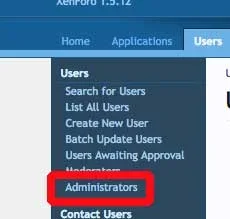I've only dealt so far with the front-end of XF for our company's project, but due to some recent internal changes I've been forced to play around more in the ACP. Everything is very straight forward and pretty easy to understand and navigate, however I am having the toughest time understanding how permissions work, and simply put, the logic behind how they function. I've read these resources, but still cannot figure out why some things are acting like the way they are.
Right now I've set my username to that of the Administrative level, and for secondary groups I have Moderating and Registered checked. We don't use any other sort of special user groups / classes. I've also set the Administrative user group to explicitly allow everything (checked the green "check all").
Now the problem I'm experiencing is when I created a node, I created prefixes and enabled the "Require users to select a prefix" which states below it that it does not apply to moderators. However when I'm logged in as my user who has been set to the Administrative user group with everything set to allow and with the Moderating set as the secondary group, when I attempt to post a thread within that node without a prefix it says "Please select a prefix". Why is that? Also, how can I make it possible to post in this forum as an Administrator and not have to specify a prefix?
Bonus question: Is there some way to make a user class (e.g. Administrator) have full rights to do anything and everything so I don't get random "insufficient privileges" on some things? I understand the risks in this, but for a strictly internal project on an internal network such as ours it would be very helpful. Also I don't see how it would be any different than a root account for a Linux server.
Thanks in advance!
Right now I've set my username to that of the Administrative level, and for secondary groups I have Moderating and Registered checked. We don't use any other sort of special user groups / classes. I've also set the Administrative user group to explicitly allow everything (checked the green "check all").
Now the problem I'm experiencing is when I created a node, I created prefixes and enabled the "Require users to select a prefix" which states below it that it does not apply to moderators. However when I'm logged in as my user who has been set to the Administrative user group with everything set to allow and with the Moderating set as the secondary group, when I attempt to post a thread within that node without a prefix it says "Please select a prefix". Why is that? Also, how can I make it possible to post in this forum as an Administrator and not have to specify a prefix?
Bonus question: Is there some way to make a user class (e.g. Administrator) have full rights to do anything and everything so I don't get random "insufficient privileges" on some things? I understand the risks in this, but for a strictly internal project on an internal network such as ours it would be very helpful. Also I don't see how it would be any different than a root account for a Linux server.
Thanks in advance!



